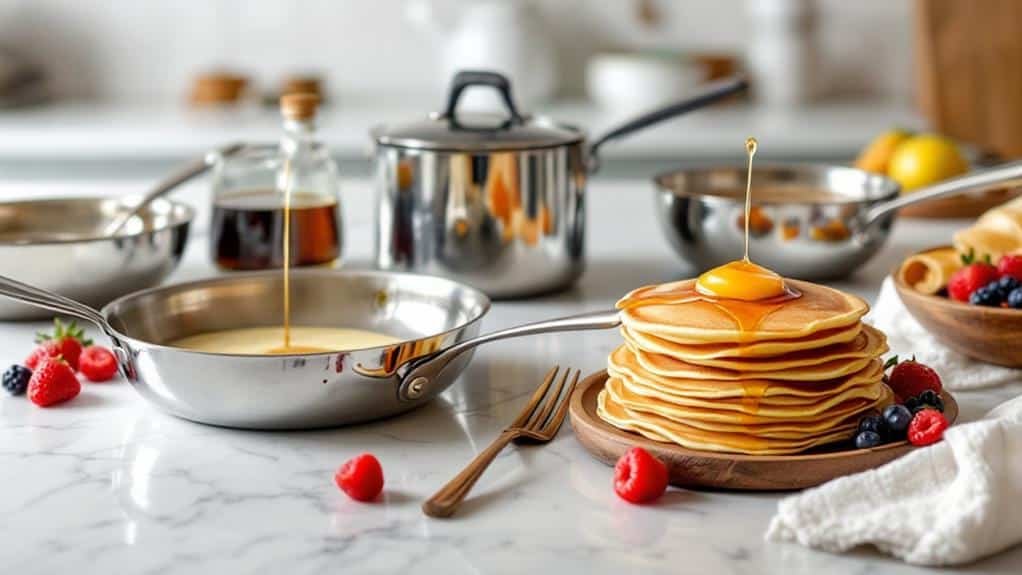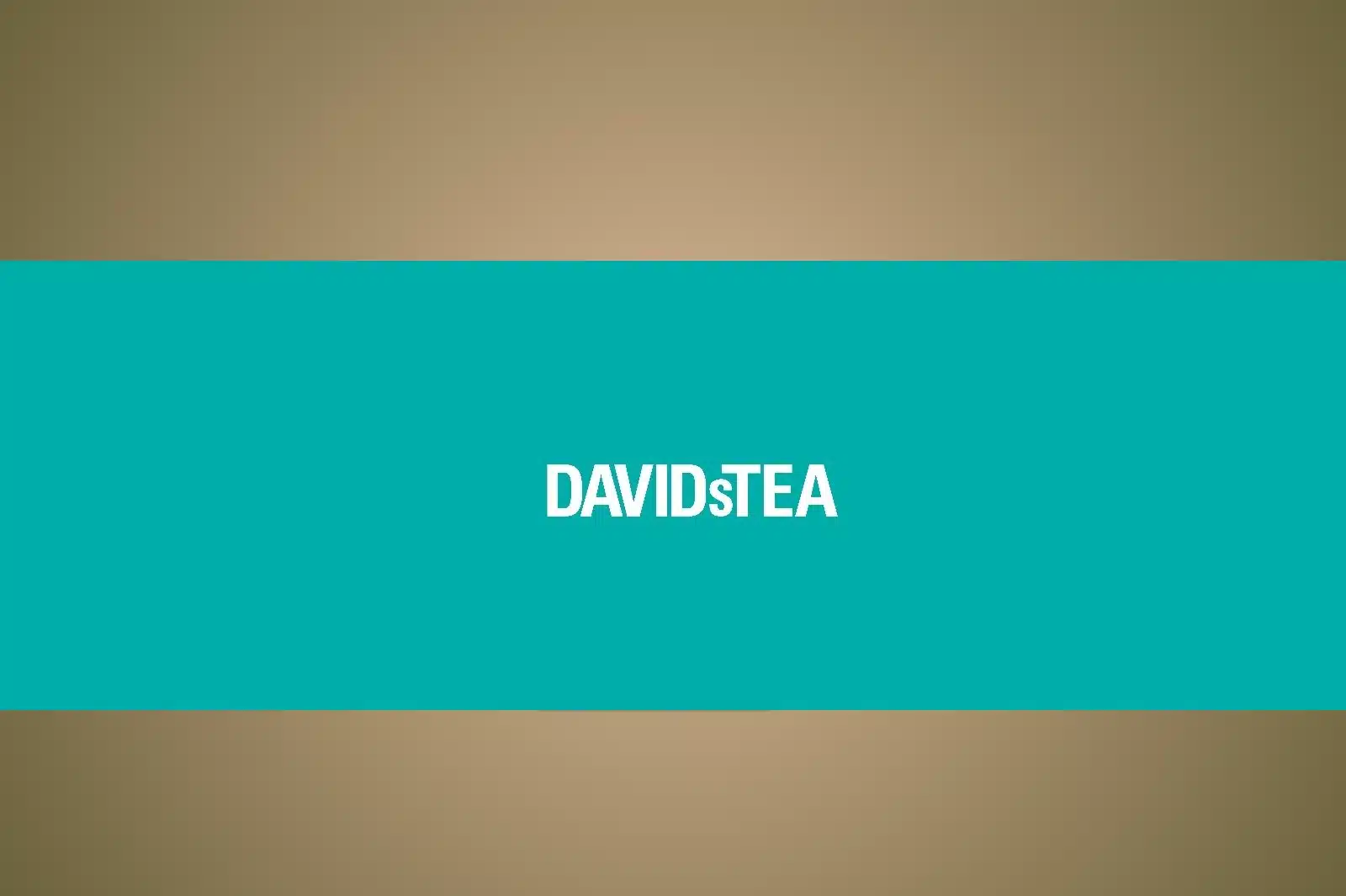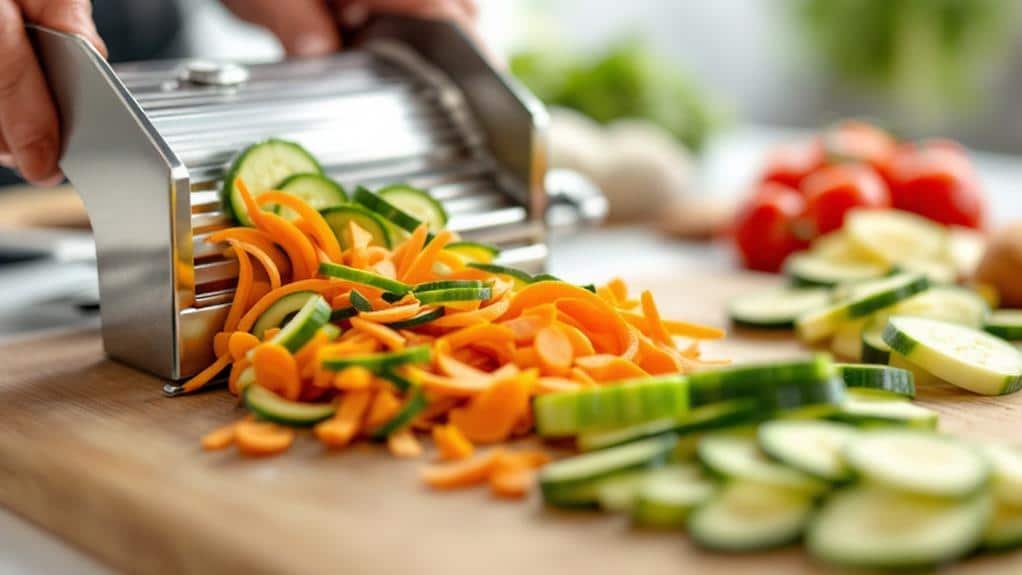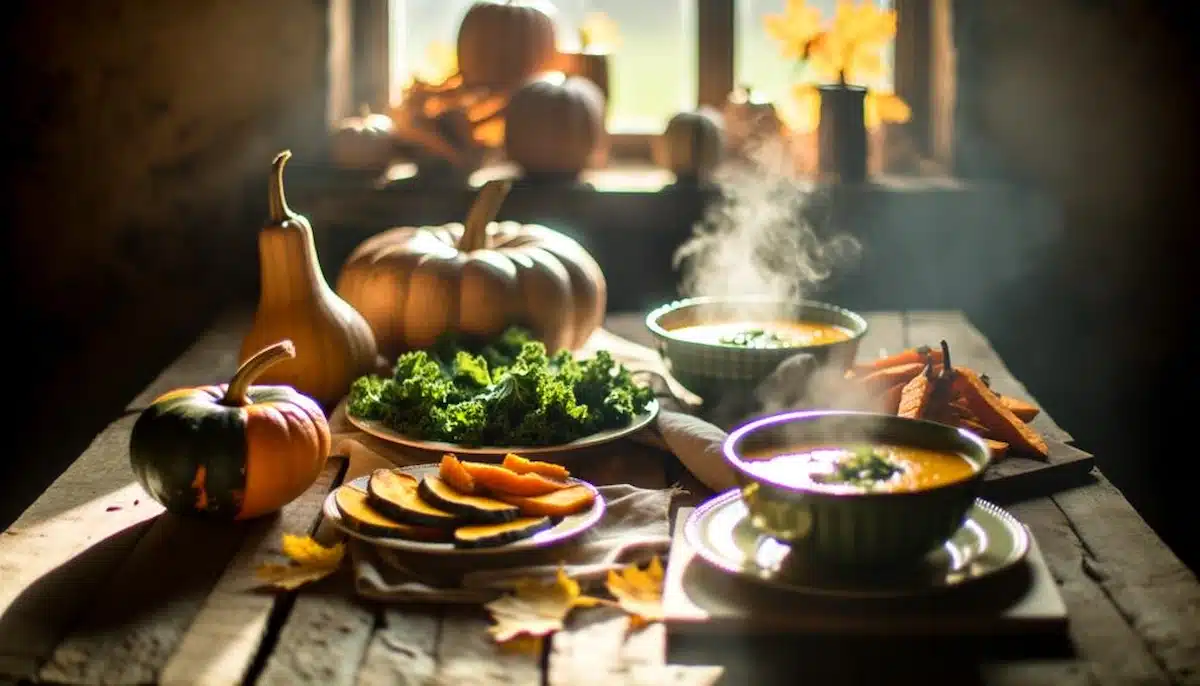Looking for simple ways to eat healthier and feel your best after 50? Healthy eating for adults over 50 is about more than counting calories—it’s about giving your body the nutrition it needs to stay active, maintain muscle, keep bones strong, and support brain and heart health as you age. The secret? A few innovative meal planning strategies and easy, nutrient-dense snacking ideas designed just for the 50-plus crowd.
As we age, our nutritional needs change—protein, calcium, vitamin D, and healthy fats become more critical for everyone, regardless of gender. Building everyday habits around balanced meals, smart snacks, and regular hydration can significantly affect energy, mood, and overall wellness.
In this guide, you’ll find:
- Easy meal planning tips for adults over 50—perfect for busy lives and changing appetites
- The best healthy snacks for seniors to keep you satisfied and energized
- Practical ways to add more protein, calcium, and healthy fats to your meals
- Why hydration, fiber, vitamin B12, and iron are essential after 50
- How the DASH diet, Mediterranean diet, and MIND diet help manage weight, protect your heart, and support brain health
Ready for delicious breakfast, lunch, and dinner ideas plus filling, nutrient-rich snacks to curb cravings? Whether you’re planning meals for yourself or a loved one, these tips will help anyone over 50 enjoy better health and more energy, one tasty bite at a time.

Healthy Eating for Over 50
Balanced nutrition with protein, healthy fats, calcium, and vitamin D is key for women over 50 to maintain muscle mass, bone density, and overall health.
Meal planning, smart snacking, and hydration are crucial in weight management and can meet the body’s daily nutritional needs and prevent overeating.
Following specific dietary patterns, such as the DASH, Mediterranean, and MIND diets, and supplementing with vitamin B12 and iron as needed, supports heart health, brain function, and vitality in women over 50.
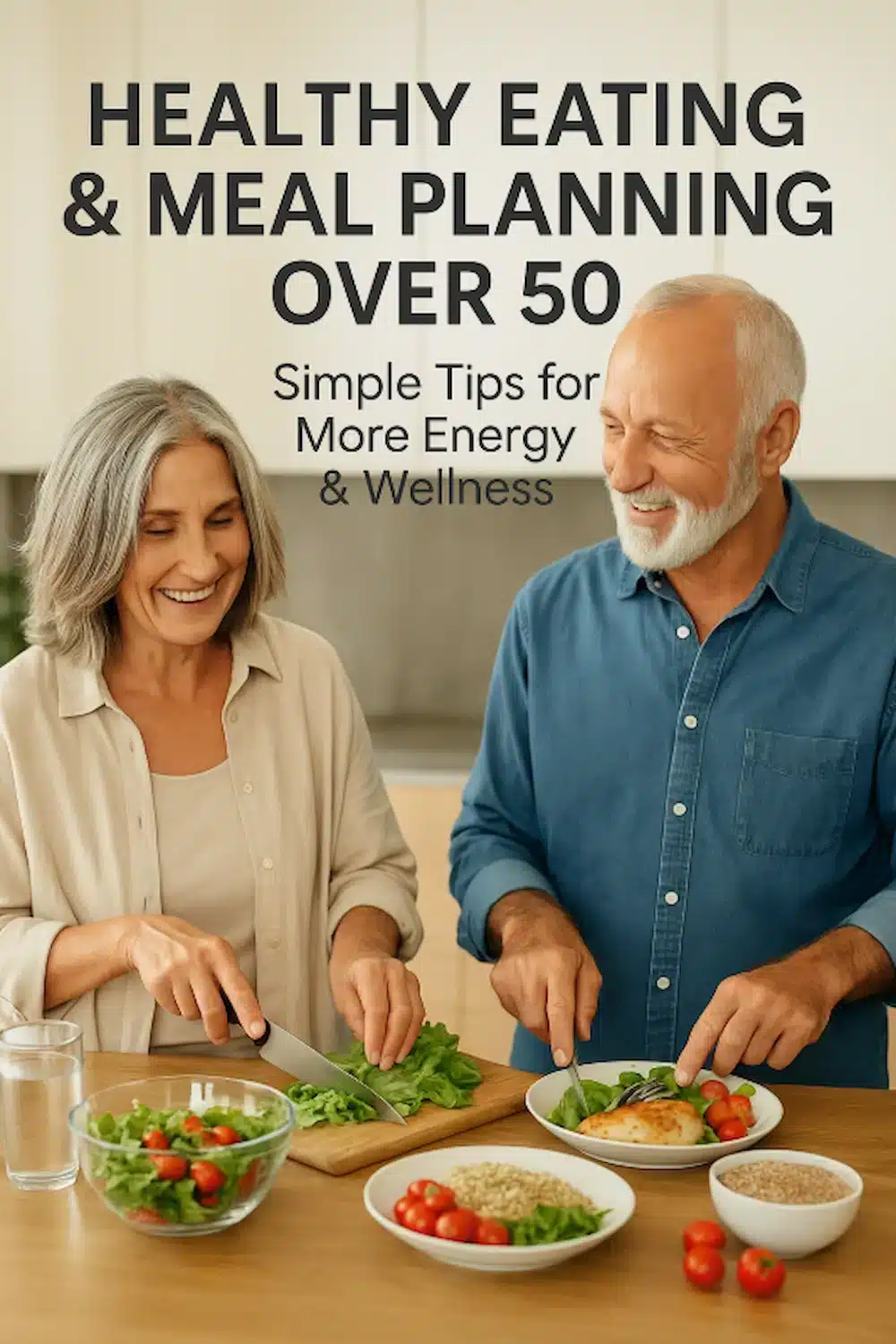
Navigating Nutritional Needs Over 50
Let’s be real: The changes that come with age can be tough. After menopause, women experience changes in lipid metabolism, gain body fat, and lose muscle mass. Weight management becomes a tough slog. But with balanced nutrition, we can win this battle! A diet rich in the right nutrients means a healthy and active life beyond 50.
So what are these nutrients, and how can we eat them? Let’s find out.
Prioritise Protein for Muscle
Remember when gaining lean muscle mass was as easy as lifting a few weights? Our muscle mass naturally decreases as we age, but that doesn’t mean we can’t fight back. For women over 50, protein becomes an essential ally in this battle. Consuming 0.5–0.9 grams of protein per pound of body weight daily can help maintain muscle mass. And we’re not just talking about protein—we mean high-quality protein.
Some high-quality protein sources:
Lean meats such as chicken, turkey, and fish
Eggs
Greek yogurt
Cottage cheese
Quinoa
Lentils
Beans
Tofu
Edamame
Eating these protein-rich foods can support your muscle health and strength as you age.
Where to find it? Look no further than lean meats, fish, tofu, eggs, quinoa, low-fat dairy, nuts, soy, beans, seeds, and dark leafy greens.
Healthy Fats for Heart Health
When we think of “fat,” we often think of something we want to get rid of, not something we want to embrace. But not all fats are created equal. Some fats, like those in low-fat milk and fatty fish like salmon, olive oil, nuts, and seeds, benefit our health. These fats, known as omega-3 fatty acids, can reduce inflammation and improve insulin effectiveness.
So, drizzle olive oil on your fish next time you cook a meal or toss nuts and seeds into your salad. Your heart will thank you.
Calcium & Vitamin D: The Dynamic Duo for Bone Density
Strong bones are the foundation of a healthy body. For women over 50, two nutrients stand out in the fight against bone weakness and osteoporosis: calcium and vitamin D. These two nutrients work together to maintain bone density. Calcium does the heavy lifting, but the body can’t absorb it without vitamin D. So, how can we eat them?
Dairy, salmon, sardines, tofu, and fortified foods are good sources of calcium, while egg yolks, fortified milk, fatty fish, and UV-light-grown mushrooms are good sources of vitamin D.
The Golden Plate: Meal Planning Over 50
Planning meals might seem like a hassle, but it’s a game-changer for weight loss and balanced nutrition. Meal planning can ensure you eat nutrient-dense foods consistently and make your grocery shopping more efficient. Including fruits and veggies in your meals and snacks can help you meet your daily servings.
So, let’s look at some breakfast, lunch, and dinner ideas that taste good and provide what you need.
Breakfast Boosters
Starting your day with a protein-rich breakfast gives you the energy you need and can prevent overeating later in the day. But what does a protein-packed breakfast look like? Two eggs with lean meat or cheese or a bowl of oatmeal with nuts and seeds.
Want something a bit more adventurous? Try a goat cheese and ham omelet made with egg whites and vegetables. Remember to add some whole grains for sustained energy and fresh fruits and vegetables for a dose of essential vitamins, minerals, and antioxidants.
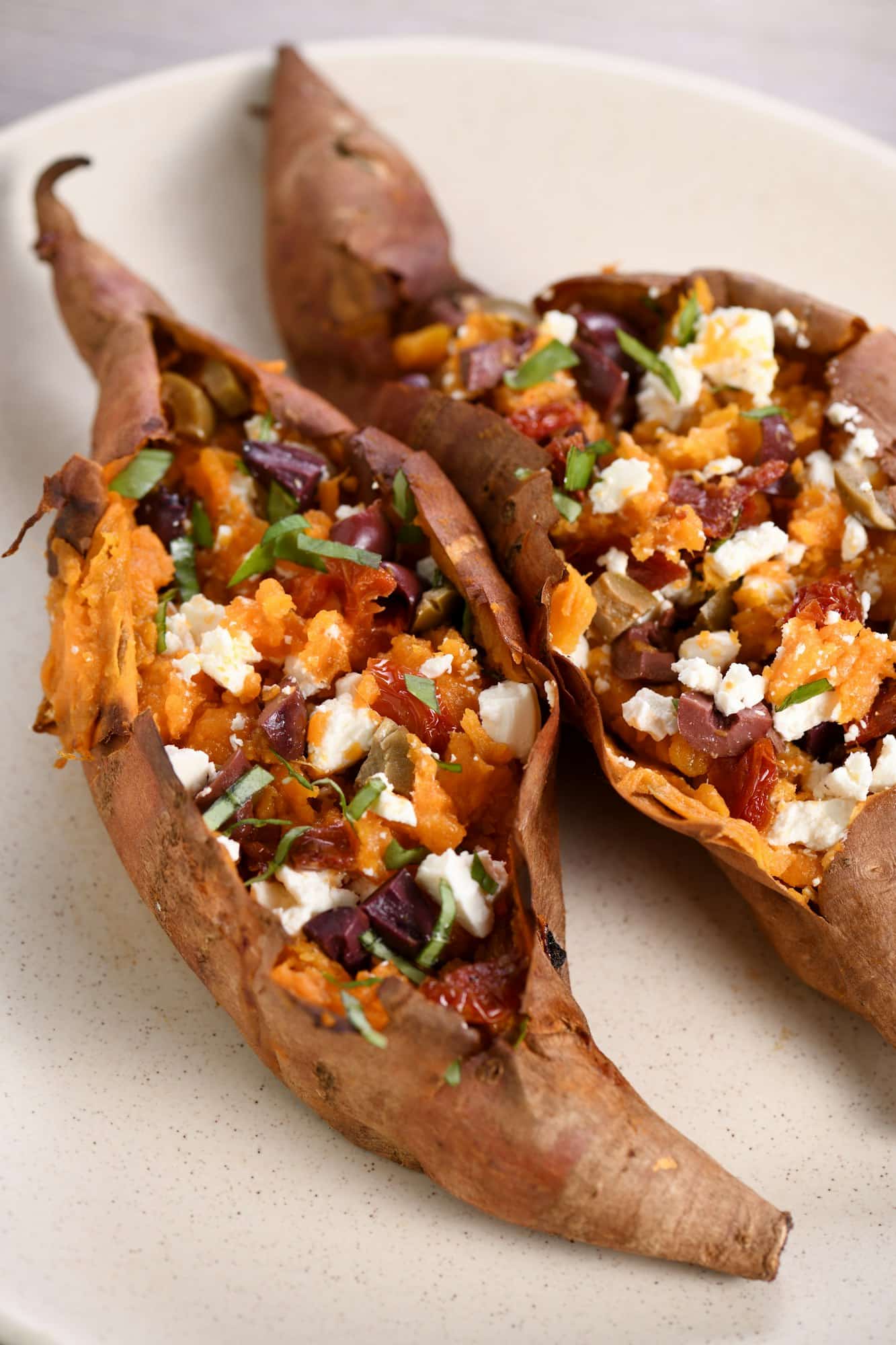
Lunch That Loves Your Heart
When lunchtime rolls around, it’s time to show your heart some love. A heart-healthy lunch can be as simple as:
A rice and beans pairing, like Frijoles Pintos Picantes
Italian stuffed bell peppers with quinoa, spinach, and low-fat mozzarella
Southwest stuffed sweet potatoes with black beans and cheese.
These lunch options are packed with leafy greens, fiber, vitamins, iron, and calcium, which are good for heart health.
Dinner Delights for Healthy Evenings
A healthy dinner can be the perfect way to cap off your nutrient-rich day as the day winds down. High-quality ingredients from local, family-owned farms can make your meal even more satisfying. Try Sweet & Savory Cantaloupe Salad and Steamed Snapper with ginger and lemongrass. Both meals are healthy evening options for overall well-being.
Smart Snacking and Hydration Habits
Between meals, smart snacking can prevent overeating and contribute to overall health. But what is a smart snack? Think of nutrient-dense foods that will keep you full until your next meal. And we can’t forget about hydration. Choosing water and herbal teas over sugary drinks can help with weight management and better hydration.
So, let’s look at some snack ideas and hydration for weight management.
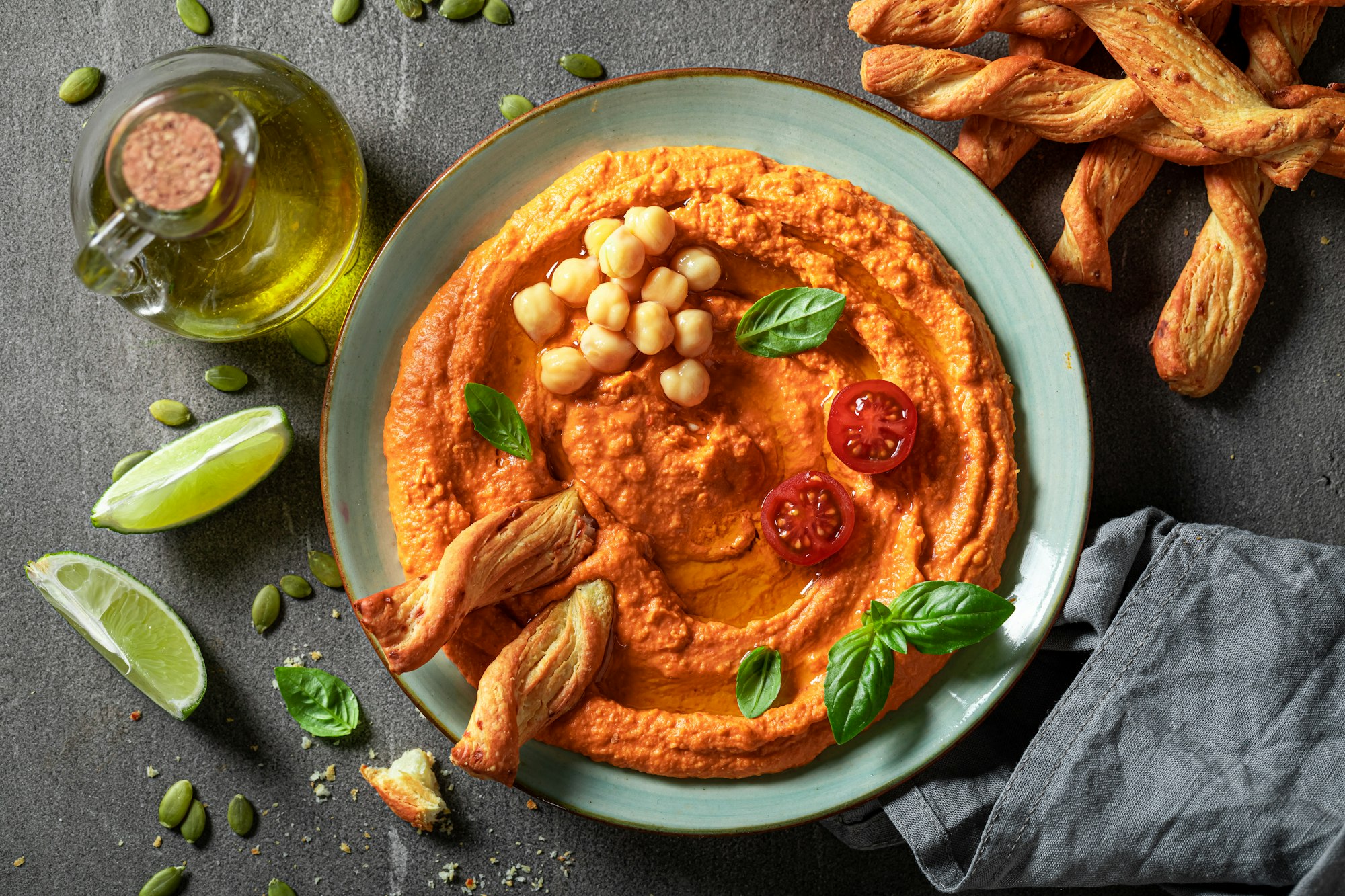
Nutrient-Dense Snack Ideas
When the midday munchies hit, reaching for nutrient-dense snacks can energize you without weight gain. Here are some options:
Fruits
Whole-grain crackers with a bit of cheese or nut butter
Pumpkin seeds
Trail mix with nuts and dried fruits
These snacks will keep you full and slow down carb absorption.
These snacks have magnesium, iron, zinc, healthy fats, fiber, and vitamin E.
Hydration for Weight Management
Did you know that proper hydration can support metabolism, contribute to more effective fat oxidation, and even play a role in controlling obesity? Water consumption has been associated with increased energy expenditure and can promote thermogenesis, which may help manage body weight.
Drinking water can reduce calorie intake and is associated with less body weight and better weight management results.
Vitamins and Minerals for Vitality at 50+
Beyond protein, healthy fats, and carbohydrates, some specific vitamins and minerals are essential for vitality and overall health in women over 50. These nutrients are key to our bodies’ optimal functioning, from bone health to brain function.
Let’s look at some of these essential vitamins and minerals.
Vitamin B12: For Nerve Cells and Red Blood Cell Production
Known for its role in maintaining brain function and red blood cell production, vitamin B12 is an essential nutrient for healthy aging. However, as we age, our ability to absorb vitamin B12 from food decreases, and we often require supplementation to prevent deficiency.
Fortified cereals, eggs, dairy, meats, and fish are good sources of vitamin B12.
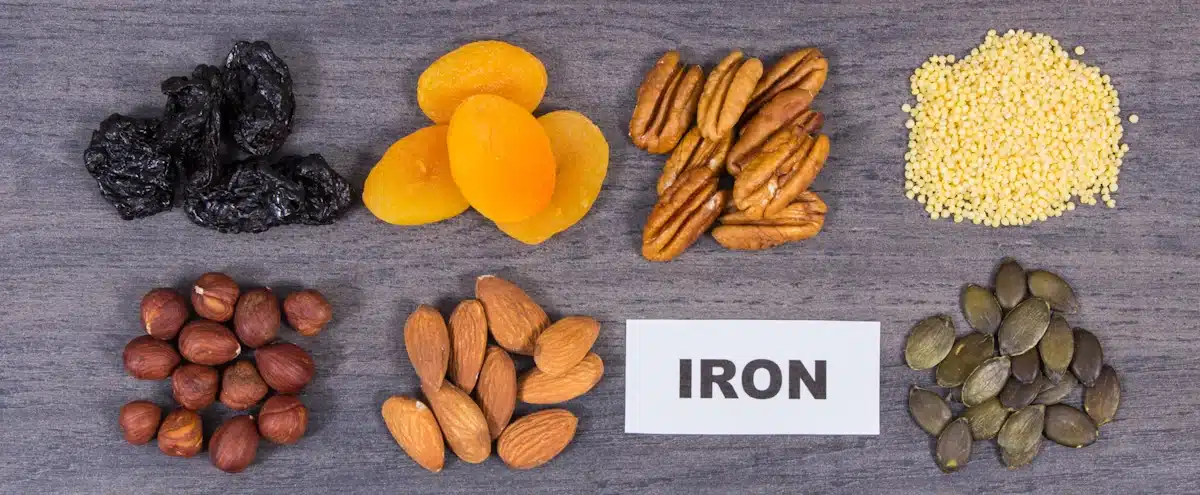
Iron for Energy
Iron is a crucial mineral that assists in maintaining healthy blood and is important for women 50+ to combat fatigue and dizziness. Iron is a component of hemoglobin, the protein in red blood cells that carries oxygen throughout the body, and myoglobin, which carries oxygen in muscle tissues.
So, how can we get iron in our diet? Animal sources, plant-based foods, and fortified foods are good sources.
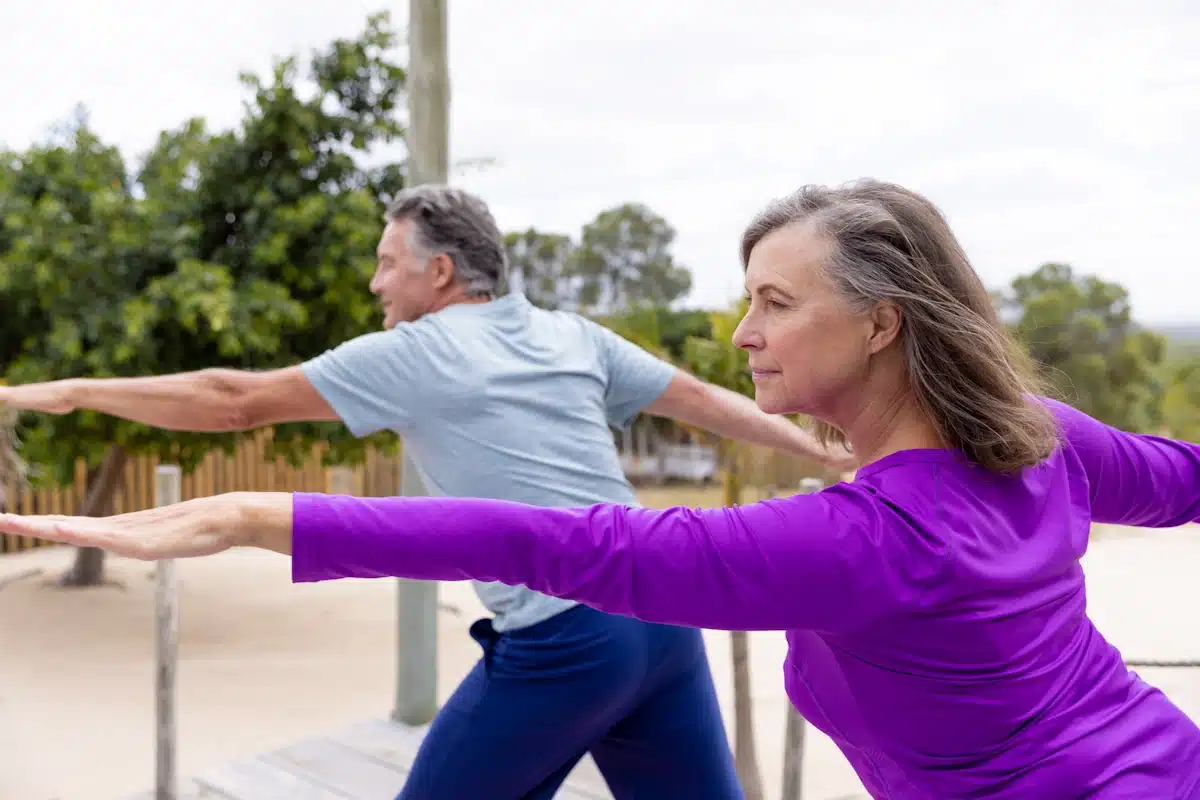
Calorie Balance and Exercise over 50
As we age, our metabolism slows down, and our physical activity levels may decrease. Balancing calorie intake with exercise is part of weight management, but we can keep our weight and health in check with the right strategies.
Adjusting Caloric Intake with Age
Do you find that you can’t eat as much as you used to without gaining weight? This is a common experience as we age due to a slower metabolism and reduced physical activity.
Women 50+ may need to eat fewer calories if they don’t change their activity level. As we get into our 60s, we may need to eat even fewer.
Diet and Exercise Combination
While diet is part of weight management, combining it with exercise can make it more effective. Adding strength training to our exercise routine can counteract muscle loss with age, which increases metabolism and helps with weight management.
Regular exercise, such as resistance training, can boost our metabolic rate and support our weight loss efforts, especially when combined with a high-protein diet.
Dietary Patterns for Health over 50
Beyond individual nutrients and meal planning, there are also dietary patterns that can support our health as we age. Three diets stand out for women 50+: DASH, Mediterranean, and MIND.
DASH Diet for Lower Blood Pressure
First up is the DASH diet, which stands for Dietary Approaches to Stop Hypertension. The American Heart Association cardiologists have selected this diet as the best for women over 50 to prevent heart disease.
The main goal of the DASH diet is to lower high blood pressure, a common concern for women in this age group.
Mediterranean Diet: A Blueprint for Healthy Eating
Next is the Mediterranean diet, a balanced, nutrient-dense eating model. This diet is rich in:
fruits
vegetables
whole grains
healthy fats
It has many health benefits, including reduced cognitive decline and heart health, so it’s a great nutritional approach for women 50 and older.
MIND Diet: A Blend for Brain and Heart Health
Last is the MIND diet, a blend of brain and heart health. This diet focuses on foods that boost brain function and has been shown to lower the risk of dementia. The MIND diet recommends eating:
Omega-3-rich fatty fish
Nuts, seeds, and oils
Berries
Green leafy vegetables
Beans
Olive oil
Whole grains
Healthy Eating for Over 50 Summary
In summary, healthy eating and living as we age are not only possible but enjoyable. Focusing on nutrient-dense foods, balancing calorie intake with exercise, and adopting a healthy dietary pattern can support our health and vitality into our 50s and beyond. So here’s to healthy eating, active living, and thriving at every age!
Frequently Asked Questions for Healthy Eating for Over 50
How does menopause affect women’s nutritional needs?
Hormonal changes during menopause can lead to increased body fat and muscle mass loss, requiring adjustments in diet, particularly in protein intake, to maintain muscle mass and support an active lifestyle.
What are some examples of high-quality protein sources?
Lean meats, fish, tofu, eggs, quinoa, dairy, nuts, soy, beans, and seeds contain high-quality protein, which can help you effectively meet your protein needs.
How can meal planning support weight management?
Meal planning supports weight management by ensuring a balanced intake of nutrient-dense foods, which can prevent overeating and promote weight loss.
Are there specific diets that are beneficial for women over 50?
The DASH, Mediterranean, and MIND diets are often recommended for women over 50 due to their potential health benefits. These diets can support overall well-being and promote healthy aging.
Can regular exercise support weight management in women over 50?
Regular exercise, including resistance training and a high-protein diet, can support weight management in women over 50.



